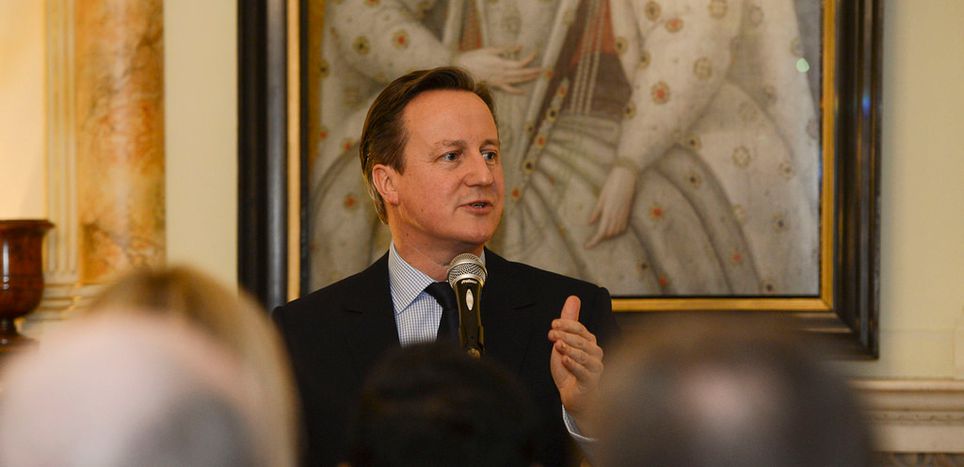
Panama Papers: a tale of two Britains
Published on
[Opinion] The ongoing fallout from the leak of the Panama Papers has not spared the United Kingdom; the Prime Minister's late father – Ian Cameron – was among those named in the documents. Yesterday, David Cameron admitted having benefited from his father's offshore trust. Is this news? Certainly. Is this shocking? Not really...
"Tax evasion is not just illegal it’s immoral. People evading tax should be treated the same as common thieves."
I couldn’t have put it better myself, which makes it all the more surprising that I took these words from Chancellor of the Exchequer George Osborne. Sadly he tweeted this 18 months ago and not just now after his BFF David Cameron was caught earlier this week.
I am referring, of course, to the Panama Papers. The 11.5 million leaked documents uncovered thousands of offshore companies set up for the rich and powerful to keep their money out of the hands of the taxman. A number of high profile politicians including Vladimir Putin, David Cameron, Iceland’s PM Gunnlaugsson and Ukrainian president Poroshenko are linked to the offshore tax havens.
How surprising is the Panama Papers affair really? I know it's good that these things get confirmed every once in a while but deep down we already knew, didn’t we? A lot of rich people move heaven and earth to shelter their money. God forbid they pitch in and pay their fair share to society. What else is new?
That's not to say we shouldn’t be outraged. The leak of the Panama Papers is the latest evidence that we're living in a society composed of two groups playing by different rules.
If you’re a Tory minister committing fraud with public money, you don’t even have to pay back most of what you stole and get off with a slap on the wrist. If you’re not part of the elite and you do the same thing, you face prison sentences of up to ten years.
Yesterday Cameron admitted he benefited from his dad’s offshore trust, yet he seems under no pressure to resign. How come we're naturally suspicious of people in the lower echelons of society while we seem to have a blind spot for those higher up?
Is it because we think the elite has obtained those places at the top on merit? That’s highly unlikely considering Britain has some of the lowest social mobility in the developed world. In a world of equal opportunities, Boris Johnson may well have been a market trader – and a fairly good one at that – but certainly not a potential prime minister.
The contrast between these two groups in Britain has never been sharper. At a time when every penny is squeezed out of those further down the ladder, the ones standing on the upper rungs accumulate more and more, and do everything in their power to not share their gains with the rest.
The Tories, who branded themselves "the party for working people" in its most recent election campaign, take no shame in giving the top 20% in Britain as much in benefits as the poorest 20%.
Britain in 2016 means it's Christmas all year round for the well off. They get presents they don’t need, paid for by money taken from people who can barely afford life's basic necessities.
In the new normal, you’re automatically assumed a "chav" or a "scrounger" if you need state assistance to sustain yourself. Authorities make you jump through hoop after hoop just to make sure you "deserve" your benefits. "The poor and the needy are selfish and greedy" is a particularly powerful Smiths lyric because of its inherent absurdity. Yet, somehow, it’s become the mantra of modern society.
It's a vile reality in which people who have trouble making ends meet are assumed to struggle because of their own life choices. A clear example of this "demonisation of the working class" – as journalist Owen Jones described it – is a measure Iain Duncan Smith wanted to introduce in 2014.
The former Work and Pensions Secretary – who recently resigned his position over what he perceived as unfair disability welfare cuts – wanted people on benefits to receive their payments on "smart cards". This meant they would have been restricted to spending their money on food and other essentials in a limited number of shops.
It was so utterly patronising that Duncan Smith had to abandon the scheme, but it shows how the Tories think: if you’re on benefits you’re probably an alcoholic or a gambling addict.
How different things are at the top where no such scrutiny exists. Despite the fact tax avoidance costs the Treasury 70 times more than benefit fraud, the finger is always pointed at those people who are continuously hit by cuts.
We now know why, of course. The Camerons didn’t just profit from tax shelters, the Tory leader also personally intervened to make sure the EU wouldn’t crack down on these shady offshore trusts. It's blatant abuse of power to serve personal interests.
Is this news? Certainly. Is this shocking? Not really. What’s shocking is that no matter how many of these stories are uncovered nothing ever seems to change. We keep voting in the same people, or we stay at home on polling day because it doesn’t matter anyway. By the time the next election comes, all is forgiven or, most likely, forgotten and the whole circus starts anew.
Save your anger for election time.
---



